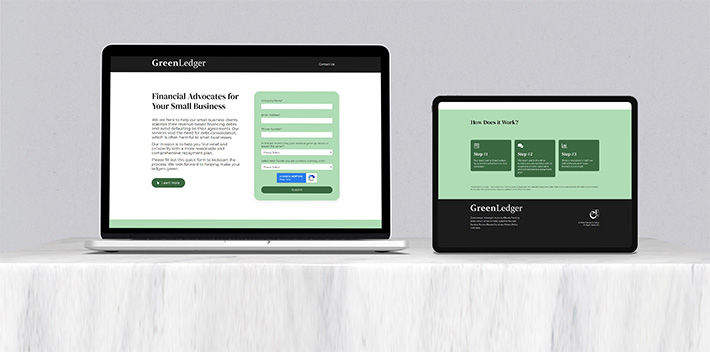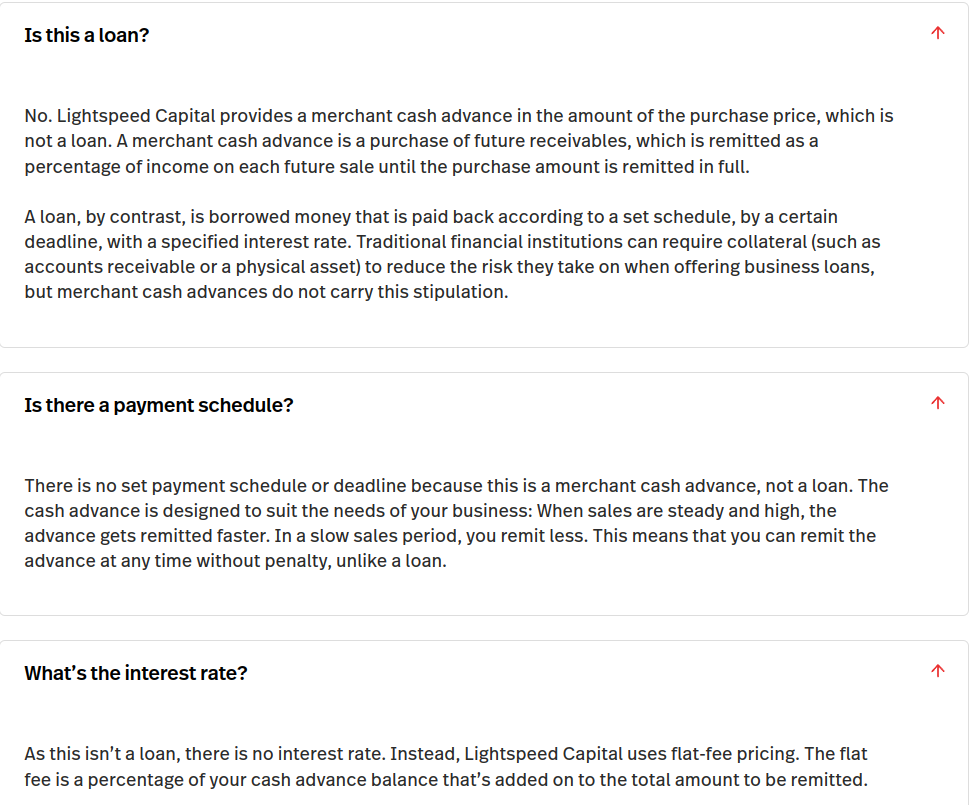Backdooring Deals? You’re a Loser
April 24, 2024 “Backdooring is just for losers,” says Thomas Chillemi, founder and CEO of Harvest Lending, a small business finance brokerage. “Like I think anybody who participates in it is just a loser.”
“Backdooring is just for losers,” says Thomas Chillemi, founder and CEO of Harvest Lending, a small business finance brokerage. “Like I think anybody who participates in it is just a loser.”
Backdooring, as colorfully referenced by Chillemi, is a colloquial term used widely across the industry to describe how leads, apps, or entire deals are stolen from brokers. The deal gets submitted through the front door and then leaks out the back door to an unauthorized third party. Chillemi sums it up as such: “backdooring is ‘I secured a lead, I secured a file in some way, shape or form. And that merchant is being contacted through my efforts somehow that I didn’t give permission to.'”
It’s a scenario that’s been top of mind at brokerages across the country for years, and it’s a problem that’s getting worse, according to sources that deBanked has spoken with.
“I would say backdooring is the worst of the worst right now,” says Josh Feinberg, CEO of Everlasting Capital, another small business finance brokerage. “I think as far as rogue employees go at direct funders, it’s the worst it’s ever been.”
Feinberg’s reference to “rogue employees” is just one such way that backdooring can occur. It can be an employee of a lender, management of a lender, an employee of the broker, a broker pretending to be a lender, and possibly in a worst case scenario even a cyber intruder like a hacker. Sometimes it’s a clandestine operation structured in a way to make it difficult for the broker to detect that their client’s file has been intercepted while other times backdooring is such a normalized function of one’s business that accepting a submission from a broker and then shopping it elsewhere to circumvent them is practically firm policy and done on an automated basis.
Some of the more seasoned brokers who are used to being on guard with what a lender intends to do with their file advise that their peers approach any proposed ISO agreement with a fine-tooth comb to establish what is or isn’t allowed. After all, if the agreement grants the lender the contractual right to backdoor the broker, is it really backdooring?
Others say the contract’s language can only carry the relationship so far.
“I only try to board up with people that seem to be good actors, but then you never know what an employee might do, right?” says Chillemi.
 Whether it’s a jaded underwriter, a slick admin, or Bob in accounting who never says a peep, it only takes one individual to set eyes on an application to be in a position to transfer the information elsewhere for personal gain. deBanked examined this subject in years past and learned the lengths that rogue employees go through to extract deal data. For example, when one funding company blocked the ability to transfer data outside of the company’s network, an employee took photos of their screen with their phone. When the employer banned cell phones in the office in response, one employee wrote down deal data on scrap paper, threw it in the garbage, and then returned to the office building after hours to try and fish it out of the dumpster.
Whether it’s a jaded underwriter, a slick admin, or Bob in accounting who never says a peep, it only takes one individual to set eyes on an application to be in a position to transfer the information elsewhere for personal gain. deBanked examined this subject in years past and learned the lengths that rogue employees go through to extract deal data. For example, when one funding company blocked the ability to transfer data outside of the company’s network, an employee took photos of their screen with their phone. When the employer banned cell phones in the office in response, one employee wrote down deal data on scrap paper, threw it in the garbage, and then returned to the office building after hours to try and fish it out of the dumpster.
The absurdity of that visual alone implies there must be big bucks in the backdoor business. Indeed, according to screenshots forwarded to deBanked of what appears to be an underground Whatsapp group, backdoored deals are currently being marketed for sale with bank statements, social security numbers, and all. A single fresh backdoored file can go for $20 – $35 or buyers can purchase them in bulk, up to 600 at a time, for a discounted price.
“Fresh Packs” apparently fetch more because the applicants may not have signed a funding contract with anyone yet and are theoretically more warm to doing a deal even if they’re not quite sure how the company approaching them got all of their information. And it’s this speed and efficiency of the backdooring happening that’s making things extra difficult for brokers. For Chillemi, he says the backdooring in earlier years would reveal itself when someone would try to call his customer a month or two after the fact. “Like even if it happened after two or three days that felt really fast,” he says. “But now, you’re talking hours, like these people have it within hours and I just don’t even know how anybody could really compete with that.”
 Brokers, ready for this, developed a tactic that is still used today as a front-line defense mechanism. They replace the applicant’s email address and phone number on the application with ones they control, so that when an attempted backdooring occurs, the caller is unsuspectingly contacting the very broker they are trying to steal the deal from. The result? They’re caught red-handed.
Brokers, ready for this, developed a tactic that is still used today as a front-line defense mechanism. They replace the applicant’s email address and phone number on the application with ones they control, so that when an attempted backdooring occurs, the caller is unsuspectingly contacting the very broker they are trying to steal the deal from. The result? They’re caught red-handed.
“I got a text from somebody claiming that they worked at Fidelity,” says Chillemi. “They texted me a picture of my own application. They’re so brazen that they’re just texting the merchant… they thought they were texting the merchant.”
Not only was the Fidelity component a deception, but the mistake of texting the broker who was just waiting to catch them is causing the backdoor shops to evolve. New backdoor callers know the application contact info might be booby-trapped so they’re now skip-tracing the applicants on an automated basis and getting their real contact info and using that instead.
For Feinberg at Everlasting, he says the method of substituting out an applicant’s contact info is not something they do, though he’s aware that it’s done by others in the working capital space. He says that it’s not something that would really be tolerated in the equipment finance side of the industry which operates much cleaner with no backdooring, at least in his experience. The lenders there hate it and everyone involved needs to be able to communicate with the customer. It’s just the working capital deals where all these problems happen.
“It’s defeating, and it’s a very very difficult thing to diagnose,” Feinberg says. He adds that the feeling is worse when realizing that it has happened even when submitting to top tier A players. There’s no delay either. He says that the customer can be called literally within the same hour of submitting it, which puts them in an awkward position.
“They lose complete trust in our company,” Feinberg says. “And it makes it very difficult to be able to work with these clients.”
 According to Chillemi of Harvest, “Most of the time what happens is the merchant calls us and says, ‘Now I’m getting all these phone calls people saying they’re working with you,’ and it’s just kind of like an embarrassment of where I’ve got to explain to this person that somebody at these companies leaked their information that wasn’t supposed to. And it just makes me look bad, right?”
According to Chillemi of Harvest, “Most of the time what happens is the merchant calls us and says, ‘Now I’m getting all these phone calls people saying they’re working with you,’ and it’s just kind of like an embarrassment of where I’ve got to explain to this person that somebody at these companies leaked their information that wasn’t supposed to. And it just makes me look bad, right?”
Another owner of a large broker shop, who did not authorize his name to be used in connection with this story, says that while everyone’s mind immediately goes to the lending companies, the most common source of backdoored deals is actually from rogue employees inside the brokerages themselves. Whether it’s the rep backdooring their own deals to circumvent splitting commissions with their employer or someone else in the chain that has access to the data, his advice was that brokerage owners first need to look extremely inwards before pointing fingers outwards. Investing in proper security is critical, he says.
But assuming that base is covered, Feinberg says that brokers should do a background check on the lenders and interview them like a lender would interview a merchant for funding.
“We absolutely look into the agreements that we sign but a lot of due diligence happens just on the first phone call,” Feinberg says. “Just on the first phone call we can judge whether this is going to be a real lender…”
A key question to ask, he says, is how compensation works. And that’s because an individual lender will have a defined fixed system whereas a backdoor broker pretending to be a lender is subject to the different compensation structures they have at all their different lending relationships and would not be able to guarantee any fixed commission pricing to the broker they are trying to trick into submitting, that is if they are intending to pay them out a percentage of the deals they backdoor them on in the first place.
“Trust is the number one thing with us,” Feinberg says. “And if trust gets broken, then it’s over. So we really try to work with people that we know personally. And the way that we’ve met people personally is through trade shows, specifically deBanked events.”
Chillemi argues that someone who tries to make their living off of backdoored deals are not salespeople at all, but as he reiterates, losers.
“[the backdoor broker] knows he’s a liar,” says Chillemi, “He’s calling these people saying he’s an underwriter… he’s not strong, he’s not learning. They don’t know what they’re doing. They’re putting the lenders at risk.”
After Tax Day: A Guide for MCA Companies
April 23, 2024David Roitblat is the founder and CEO of Better Accounting Solutions, an accounting firm based in New York City, and a leading authority in specialized accounting for merchant cash advance companies. To connect with David or schedule a call about working with Better Accounting Solutions, email david@betteraccountingsolutions.com.
Congratulations- you’ve survived Tax Day!
About 130 million tax returns were filed by Monday’s April 15 deadline, and business owners, employees and accountants will all breathe a sigh of relief and wait for the refunds to roll in.
Let’s explore what the next few months look like for those that successfully lodged their documents in time with the IRS, and those that didn’t.
I Am Amazing Because I Filed My Taxes On Time
Yes, you are incredible. Good job!
Having successfully sorted through your finances and organized it for the IRS, now is the best time to set yourself up to have an easier time filing in 2025.
Here’s a quick checklist of things you can fix now to make your life easier:
- Did you give yourself enough time to send W-2’s and 1099 documents to your employees and contractors?
- Did you make sure your employees and contractors have gave you a filled out W-4 or W9 on time?
- Were all your deals categorized and classified correctly by your bookkeeping company,or did your accountant have to constantly follow up with you to ensure he understood what deal was doing what?
- Was every deal conducted in different states accounted for tax purposes?
- Did you have all your documentation available and in order?
- Is your industry tailored CRM getting you all the information you need?
- Did your accountant prepare you for any taxes or surprise liabilities you may have incurred?
Knowing the answers to these questions can help you understand whether you had a great experience during this year’s tax season, or if you should begin to explore and implement new processes to shore up your team, books and reporting structure going forward.
I Have Not Filed Taxes Yet For Many Good Reasons
Yes, you are incredible too, and we can’t judge you for having very good reasons to miss the deadline. Here’s some information you need to know:
What happens if I miss the tax deadline but expect a refund?
If you’re sure you are due a refund from your 2023 tax return, you won’t face any penalties for an individual return late. You have up to three years to file and still get your refund, which might take four to six weeks to receive after you file. But for business and partnership filings, most states on your partnerships and business returns for filing late even if you don’t owe anything.
What are the consequences of missing the deadline when I owe taxes?
If you miss the deadline and owe money without filing an extension, you will face penalties for both late filing and late payment, plus interest on the owed amount until it’s fully paid. The state you are in will determine how severe the penalties will be.
What are the specific penalties for late tax filings?
The IRS imposes a failure-to-file penalty, typically 5% of the unpaid taxes each month, capped at 25%, and a minimum penalty if over 60 days late. There’s also a failure-to-pay penalty, about 0.5% of unpaid taxes per month, also capped at 25%.
Can I still file for an extension if the deadline is near?
Yes, you can file for an extension by the tax deadline, which gives you six more months to file your tax return. However, you need to estimate and pay any taxes owed by the original deadline to avoid penalties, and some states won’t even accept the extension unless the estimated taxes are paid.
What if I can’t pay the full amount I owe right away?
You can arrange a payment plan with the IRS if you can’t pay immediately. Short-term plans for up to 180 days are available at no cost, though interest and penalties still apply. For longer needs, long-term payment plans are available with varying fees.
Working with an experienced tax accountant specializing in your industry, in this case merchant cash advance accounting, can ensure you’re always on top of your finances and handle the specific challenges of your field effectively. This specialized knowledge helps in correctly filing tax returns, spotting potential tax reductions, maximizing returns and customizing strategies specially tailored for your business. If you’ve got any questions on your 2023 taxes or how to plan ahead for 2024, your friends at Better Accounting Solutions are always here to help.
Stop the Debt Settlement People, Funders Come Up With Merchant-Friendly Alternative
April 3, 2024 Are debt settlement “advisors” interfering with your contracts and putting your merchants in a bad spot? The industry is now taking the reins on a solution. It’s called GreenLedger, a platform for funders to work together on resolving a merchant’s situation with no debt settlement middlemen encouraging an intentional default, taking fees, and making false promises.
Are debt settlement “advisors” interfering with your contracts and putting your merchants in a bad spot? The industry is now taking the reins on a solution. It’s called GreenLedger, a platform for funders to work together on resolving a merchant’s situation with no debt settlement middlemen encouraging an intentional default, taking fees, and making false promises.
Founded by Elevate Funding CEO Heather Francis, who aims to eventually make it a non-profit, merchants would go to this industry-collaborative platform, indicate who they have open contracts with, and the platform would notify the funders directly.
“From there, the primary points of contact at each funder can get together to come up with a more specific and comprehensive payment plan that works with the merchant’s needs,” said Francis. “GreenLedger’s mission is to work directly with our small business clients to stabilize their revenue-based financing arrangements and avoid breaching their agreements, eliminating the need for potentially predatory middlemen.”
The platform has already been generating interest.
“As an attorney deeply committed to the financial empowerment of small and medium-sized businesses, I am thrilled to endorse Elevate Funding’s creation of GreenLedger,” said industry attorney Patrick Siegfried. “This initiative represents a pivotal step in our ongoing battle against the increasing prevalence of unscrupulous entities in the commercial finance debt settlement industry. Far too often, these bad actors employ deceptive sales tactics and bind clients with unfair contracts, leading not to the promised debt relief but to further financial strain for small businesses. GreenLedger, with its dedication to transparency and integrity, stands as a true avenue for business owners seeking legitimate and effective financial solutions. Its mission to root out malpractices and safeguard the interests of small businesses is not just commendable but essential in today’s challenging economic landscape.”
To learn how you can participate and cut the debt settlement people out of the picture, attend this webinar on April 16th.
How Merchant Cash Advance Companies Can Avoid Problems This Tax Season
April 2, 2024David Roitblat is the founder and CEO of Better Accounting Solutions, an accounting firm based in New York City, and a leading authority in specialized accounting for merchant cash advance companies. To connect with David or schedule a call about working with Better Accounting Solutions, email david@betteraccountingsolutions.com.
 In the fast-paced and ever changing world of cash advance, tax season can often present a labyrinth of compliance and reporting challenges. These challenges are not just bureaucratic hurdles that must be overcome; they also serve as crucial tests of a company’s financial health and operational integrity. Given the intense scrutiny the cash advance industry faces from regulatory bodies, particularly in light of recent industry shaking events, alongside the unique nature of how its financial transactions can be structured, ensuring tax compliance is not just advisable—it’s essential. Let’s discuss frequent speed bumps cash advance companies encounter during tax season, and some solutions for these problems.
In the fast-paced and ever changing world of cash advance, tax season can often present a labyrinth of compliance and reporting challenges. These challenges are not just bureaucratic hurdles that must be overcome; they also serve as crucial tests of a company’s financial health and operational integrity. Given the intense scrutiny the cash advance industry faces from regulatory bodies, particularly in light of recent industry shaking events, alongside the unique nature of how its financial transactions can be structured, ensuring tax compliance is not just advisable—it’s essential. Let’s discuss frequent speed bumps cash advance companies encounter during tax season, and some solutions for these problems.
Misclassification of Income and Advances
One of the most significant stumbling blocks for cash advance businesses lies in the misclassification of the funds they advance to customers. This misstep can lead to serious tax implications, distorting the financial understanding of a company in the eyes of the law. A robust accounting system that accurately differentiates loans, advances, and income is not just a recommendation; it’s a necessity. Each category must be meticulously reported for tax purposes, a task that underscores the importance of seeking guidance from a tax professional well-versed in the nuances and implications of these classifications.
Misreporting Income
A common oversight among cash advance companies is the inaccurate reporting of income. Whether it’s underreporting or misclassifying earnings, the repercussions can be severe, and include the possibility of triggering an audit or incurring a severe financial penalty. The remedy? An accounting software tailored for the funding industry (such as Orgmeter, MCA-Track, OnyxIQ, Centrex, or LendSaas), capable of automating the calculation and reporting all necessary metrics and income. This ensures not only compliance but also a transparent overview of a company’s financial health that benefits you as well.
State-Specific Tax Obligations
Just over 5 years ago, Wayfair was successfully sued by South Dakota for failing to tax online sales even though they had no physical presence in the state, beginning a new era of legal understanding of state tax obligations in the internet and cross-state trade era.The complexity of tax compliance is magnified for cash advance companies operating across state lines, each with its unique tax laws and regulations. This multi-state maze can easily lead to oversight or misunderstanding, risking non-compliance. The solution is twofold: developing a comprehensive compliance checklist for each state and consulting with tax professionals who specialize in navigating these multi-state operations. Together, these strategies form a bulwark against the many possible blind spots of state-specific tax obligations.
Documentation for Audits
Not having the correct documentation and record-keeping on hand can transform a routine tax audit into a nightmare scenario, and cause businesses to be slapped with heavy penalties and fines. To counter this risk, cash advance companies need to maintain meticulous records of all transactions. Experts often recommend businesses conduct regular audits, whether internal or external, to ensure these records are both accurate and will back you up when they are needed.
Planning for Tax Liabilities
Perhaps one of the easiest mistakes to avoid is not adequately planning for surprise tax liabilities. Without planning in advance and setting aside sufficient funds to cover these obligations, companies can find themselves in a precarious cash flow situation when taxes are due. A proactive strategy to counter that involves specifically marking off a portion of income in a dedicated account for unforeseen expenditures (tax liabilities included), calculated with an estimated effective tax rate. This approach, developed with the assistance of a tax professional, can prevent the unwelcome surprise of a hefty tax bill when you’re not ready for it.
At the end of the day, tax compliance, while definitely not fun, should not be viewed (just) as a regulatory pain-in-the-butt, but as a way to ensure a cash advance business’s success and longevity. By embracing proactive tax planning and compliance, companies can not only successfully navigate the complexities of tax season but also reinforce the integrity and sustainability of their business and ensure their success and viability for years to come, free from any stress or government microscope.
On Long Island? You Might See Signs
March 26, 2024
Billboards for Broker Fair 2024 have gone up across several Long Island towns this past week, including locations in Glen Cove, Syosset, Westbury, Bay Shore, and Valley Stream. The conference, built specifically around a broad range of commercial finance brokers, will take place on May 20 in New York City. Long Island is among the largest geographical employers of brokers in the United States.
Broker Fair attendees can expect to learn from industry pro Peter Ribeiro, meet a wide range of funders/lenders & vendors, pitch their deals, and find out what they need to be doing to remain compliant and become successful.
Broker Fair 2024 will take place at the Metropolitan Pavilion in New York City. Brokers pay the lowest price for entry. There is also a pre-show party the night before on May 19th at a Lounge called Somewhere Nowhere NYC (yes that’s really the name!).
If you’re a broker, Broker Fair 2024 is an event you cannot miss!

What Big Publicly Traded Companies Say About Merchant Cash Advances
March 13, 2024deBanked examined the public messaging from some of the largest publicly traded merchant cash advance facilitators in the US and this is what it found:
SHOPIFY
A merchant cash advance is a purchase of your future sales, also known as receivables. If your application for funding is accepted, then Shopify provides you a lump sum of money for a fixed fee. Under the Shopify capital agreement, this lump sum is known as the amount advanced, and the total to remit is the amount advanced plus the fixed fee. In return, you pay Shopify Capital a percentage of your daily sales until Shopify receives the total to remit. The percentage of your daily sales that you must remit to Shopify is known as the remittance rate. The amount advanced and the remittance rate depend on your risk profile.
For example, Shopify Capital might advance you 5,000 USD for 5,650 USD paid from your store’s future sales, with a remittance rate of 10%. The 5,000 USD amount that you receive is transferred to your business bank account specified in your admin, and Shopify Capital receives 10% of your store’s gross daily sales until the full 5,650 USD total to remit has been remitted. You have the option, at any time, to remit any outstanding balance in a single lump sum.
There is no deadline for remitting the total to Shopify Capital. The daily remittance amount in USD is determined by your store’s daily sales, because the remittance rate is a percentage of your store’s daily sales. The remittance amount is automatically debited from your business bank account.
DOORDASH
DoorDash Capital is a cash advance, not a loan. With a cash advance, the offer is based on your sales and account history, and includes a simple, transparent one-time fee that you’ll know before you decide to accept the offer. A loan operates using interest, which can compound over time, and often includes other fees in addition to the stated interest rate.
LIGHTSPEED
AMAZON
A [merchant cash advance is a] non-revolving sum of funding with flexible payment, no personal collateral required and no late fees. With flexible payment, no personal collateral required and no late fees, a merchant cash advance provides sellers funding to help run and grow their business. Unlike interest-bearing loans, the advance ties payment to a portion of a seller’s future sales for a fixed capital fee, there are no additional fees or interest charged.
NERDWALLET
Fixed withdrawals from a bank account
Merchant cash advance companies can also withdraw funds directly from your business bank account. In this case, fixed repayments are made daily or weekly from your account regardless of how much you earn in sales, and the fixed repayment amount is determined based on an estimate of your monthly revenue.
PAYPAL
A merchant cash advance is not a loan, but rather a type of financing that business owners pay back with a percentage of their future sales.
Cash (Basis) is King
March 1, 2024David Roitblat is the founder and CEO of Better Accounting Solutions, an accounting firm based in New York City, and a leading authority in specialized accounting for merchant cash advance companies. To connect with David or schedule a call about working with Better Accounting Solutions, email david@betteraccountingsolutions.com.
 Tax season is upon us, and it’s the worst.
Tax season is upon us, and it’s the worst.
Aside from wading through scores of financial documents and dealing with a million questions, it’s a fact that our government is purposely opaque in how it accounts for the tax dollars they take from business owners, and simply don’t know what it’s like to actually have a job that doesn’t involve overegulating others. On top of that, the merchant cash advance space is a difficult one to define and operate in for its different categories of advances and investors. As a result of all this, tax season can be complicated and difficult.
It’s for this reason that Better Accounting Solutions services many cash advance businesses- so let me explain what we do and why to make it easier for our clients, and-hopefully- easier for you as well.
Loans are easy to account for: there is simply the principal amount and interest. By contrast, cash advances involve the purchase of future receivables with different metrics, durations and structures for how it is paid.
Because of this, Better Accounting Solutions are big proponents of the cash basis accounting method (if a business makes less than $10 million in actual annual revenue): only recognizing the income when it is received, instead of when the transactions are made but before any money is actually seen.
To explain the concept, consider this example we’ve used before:
A merchant cash advance provider funds a merchant with $100,000 at a commission expense of 12% and a Closing Fee income of 10%. The bank fee income and RTR/Factor Rate is .5, while the merchant will pay back $150,000, $1,500 daily assuming a 100 day duration.
In terms of handling the books, we’d recommend recognizing the commission expense and closing fee income immediately (in most scenarios) on the day the advance is given, deducted from the funded amount.
But with the factor income, no additional income would be recognized until the full contract funded amount of $100,000 is received in the funder’s bank account (not just the amount wired). Once the contract amount is fully received on a cash basis, any payments received after that point constitute factor income or RTR income.
We recommend recognizing income and filing this way because, simply by reporting on a cash basis, you are deferring the recognized tax income.
This means that for all the deals in the process of being paid by the time the financial year is over do not need to be recognized for tax purposes until the next year when the full amount is back in your account, thereby deferring your tax liabilities.This means you have more time to spend that money and grow your actual business, which is obviously the reason we all do what we do.
When done simply, without over bureaucratic machinations, and with professional assistance, taxes don’t have to be a painful and difficult experience, and can even be a boon to your cash flow when done right. Make 2024 the year you show Uncle Sam you know your way around the tax system, no matter what they throw at you.
It’s essential to emphasize that this article is for informational purposes only and should not be construed as personal accounting or financial advice. It’s strongly recommended for funders and companies to seek guidance from qualified accountants or financial professionals to ensure compliance with accounting standards and tax regulations tailored to their specific circumstances.
Shopify Capital Renewal Rate Greater than 70%
February 13, 2024Shopify Capital’s funding business is continuing to gain momentum, according to the company’s latest quarterly earnings. Shopify stopped specifying precisely how much it is originating (perhaps because deBanked kept turning those numbers into posts every quarter for years) but still lists the receivables from its loans and merchant cash advances as a line item on its balance sheet. There the balance increased from $580M to $816 year-over-year.
“We know the capital product has been effective because we’re seeing a repeat renewal rate of over 70%, a testament to our ability to help merchants access the funding they need for growth, particularly ahead of key sale times, including the crucial Q4 holiday shopping season,” said Shopify President Harley Finkelstein during the call.
































